The Emotional Growth Cycle for Leaders
I spent 15 years in therapy, and it transformed my emotional maturity.
As we grow in our ability to process our emotions, as well as being a path to vibrant health, we grow as leaders.
I’ve distilled my healing process into what I call the Emotional Growth Cycle.
I break it down below.
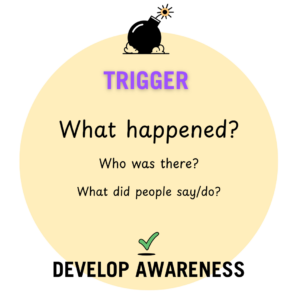
The cycle begins with understanding your emotional triggers, i.e. a stimulus that provokes an intense feeling or reactions.
The reaction could be an “act out”, i.e. an impulsive, irrational expression, often aggressive in nature. Or it could be an “act in”, i.e. when you direct your feelings inwardly, often resulting in behaviours like self-criticism, withdrawal, or even self-harm.
Identifying triggers is the starting point for deeper self-awareness.
By pausing to break down what happened during these moments—who was there and what happened—you can start to see the pattern for your over- and under-reactions.
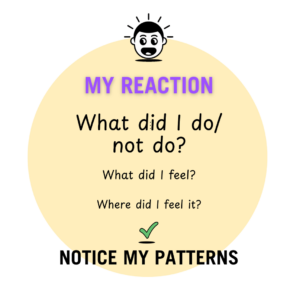
Noting your reaction, recalling your feelings and locating them in the body is the next step.
Identifying the exact point when you first felt certain emotions builds self-awareness of your ‘trigger landscape’.
It ties the event to the feelings and sensations, and crucially, what you did or did not express.
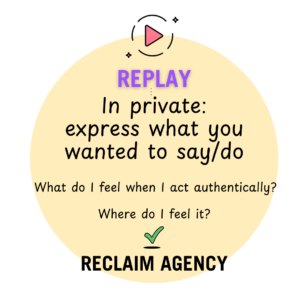
The third phase involves giving yourself agency to replay the scene. But this time, you respond based on your true feelings.
Imagine, then express, what you wish you had done.
Replaying these scenarios in a trusted private space is highly restorative. It’s this embodied practice that helps you reclaim your sense of control and is the fuel for emotional recovery.
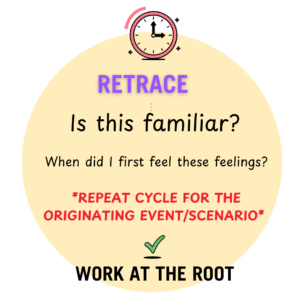
Finally, you can choose to work at the root and explore one level deeper.
Retrace the earlier scenes and situations from your life where the trigger originates.
This is the most profound level of work and the most healing.
Conclusion
Ultimately, engaging in the emotional growth cycle improves your stability and well-being permanently.
What’s more, as a foundation of leadership development, it will improve both your effectiveness and your overall health.
If you engage in this work, you’ll be able to better manage your responses, improve the dynamics of the teams you lead and you’ll build a healthier environment around you – whether at work or at home.
Leaders who do this work become less reactive, more responsive and make better decisions.
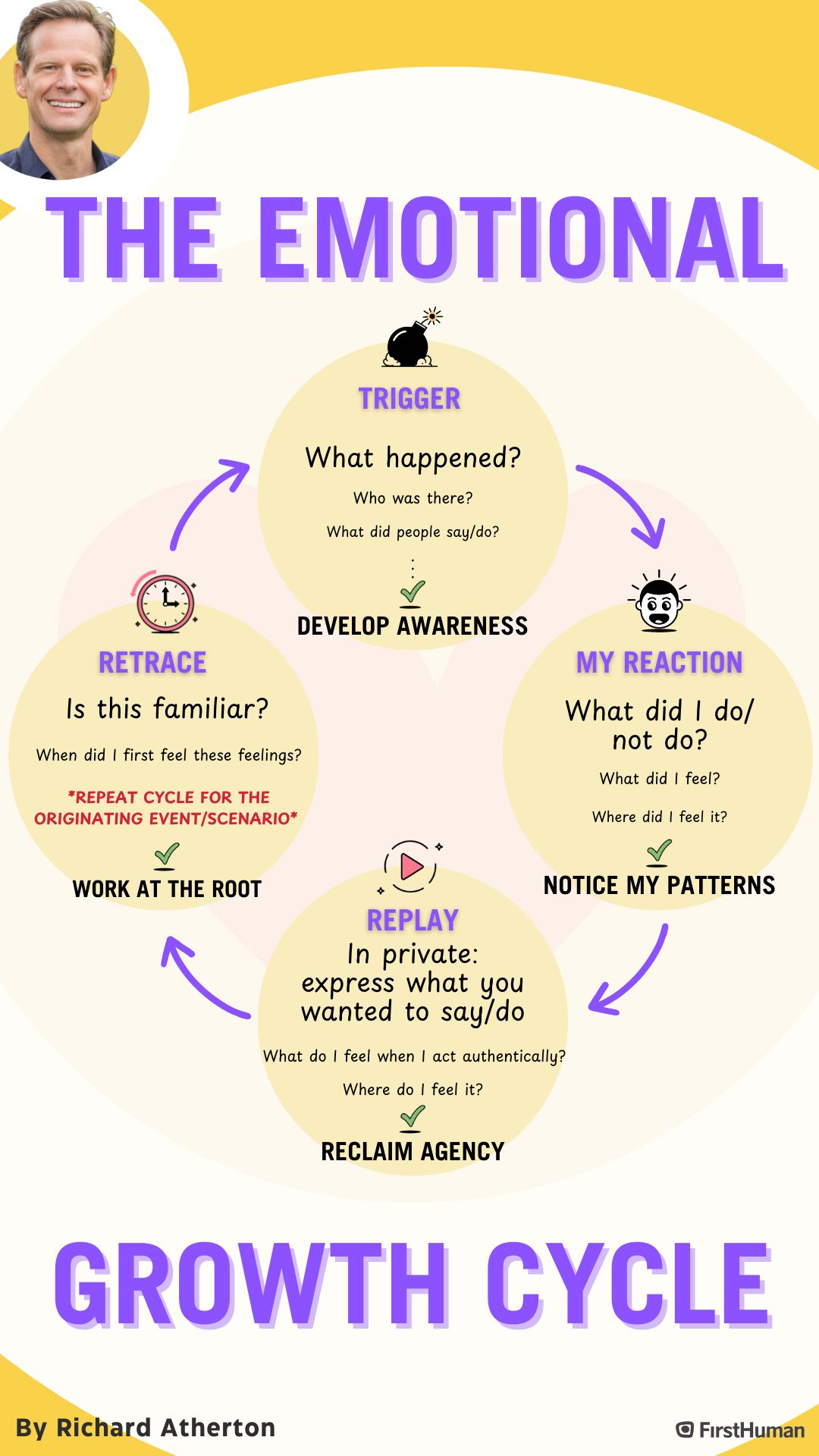
Summary
- Recognising emotional triggers is the first step to self-awareness.
- Reflecting on your reactions builds emotional intelligence and resilience.
- Healing at the root-cause level has the biggest, most sustainable impact.
Would you like to explore how you might apply the emotional growth cycle in your own life and leadership?
Then we’d love to talk to you.
Book a call with us here.
